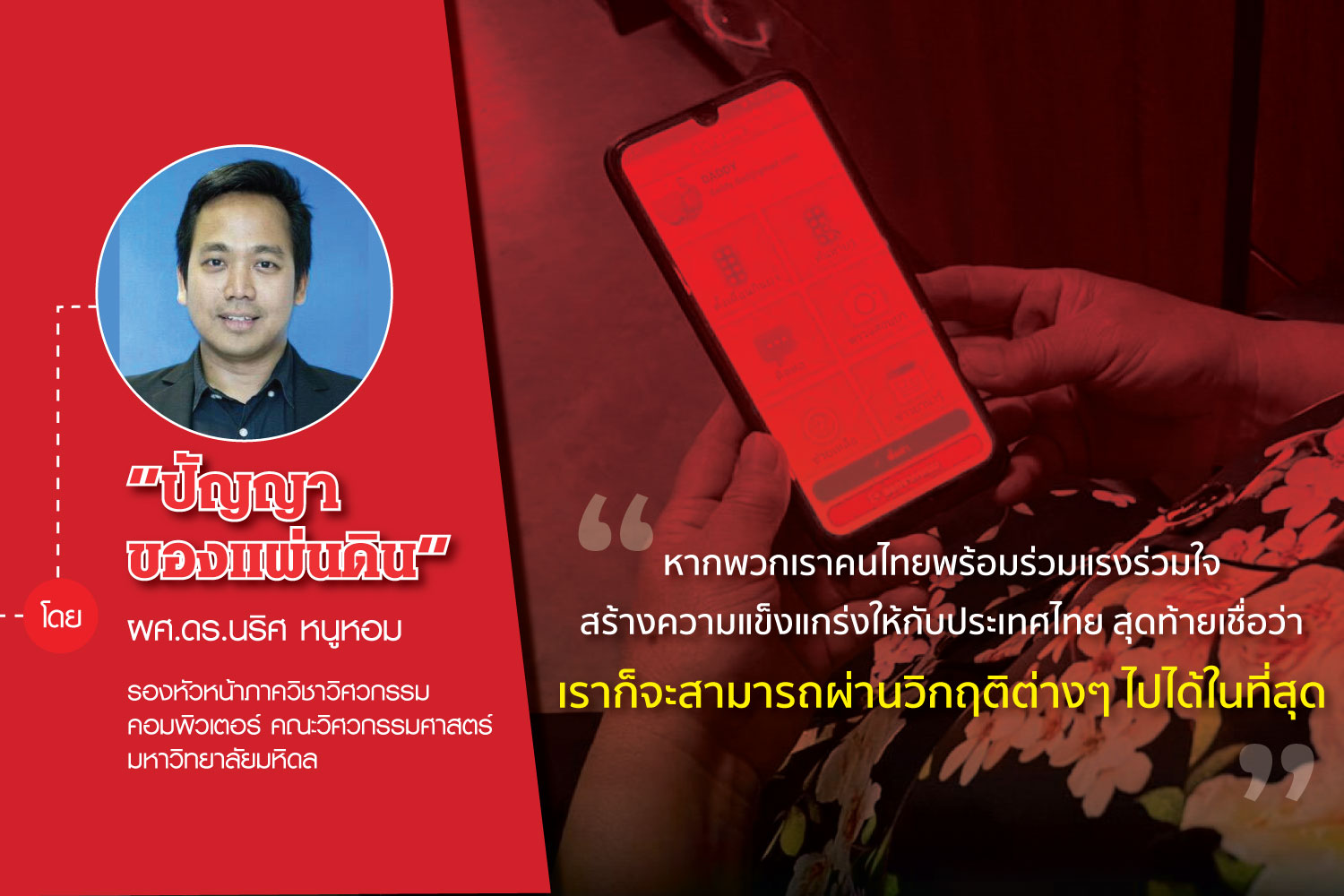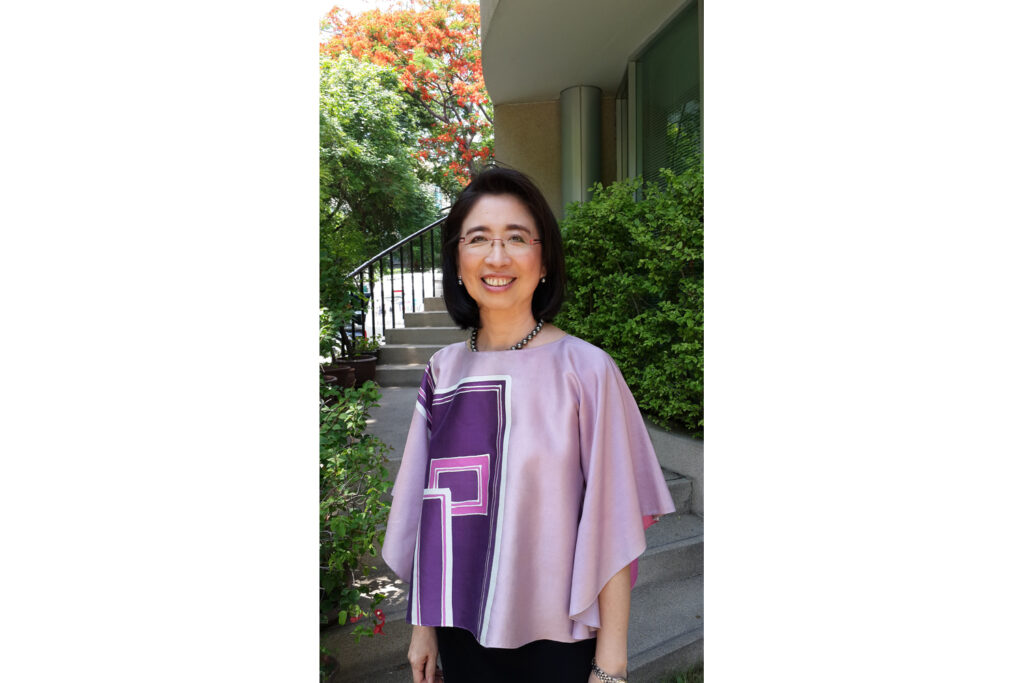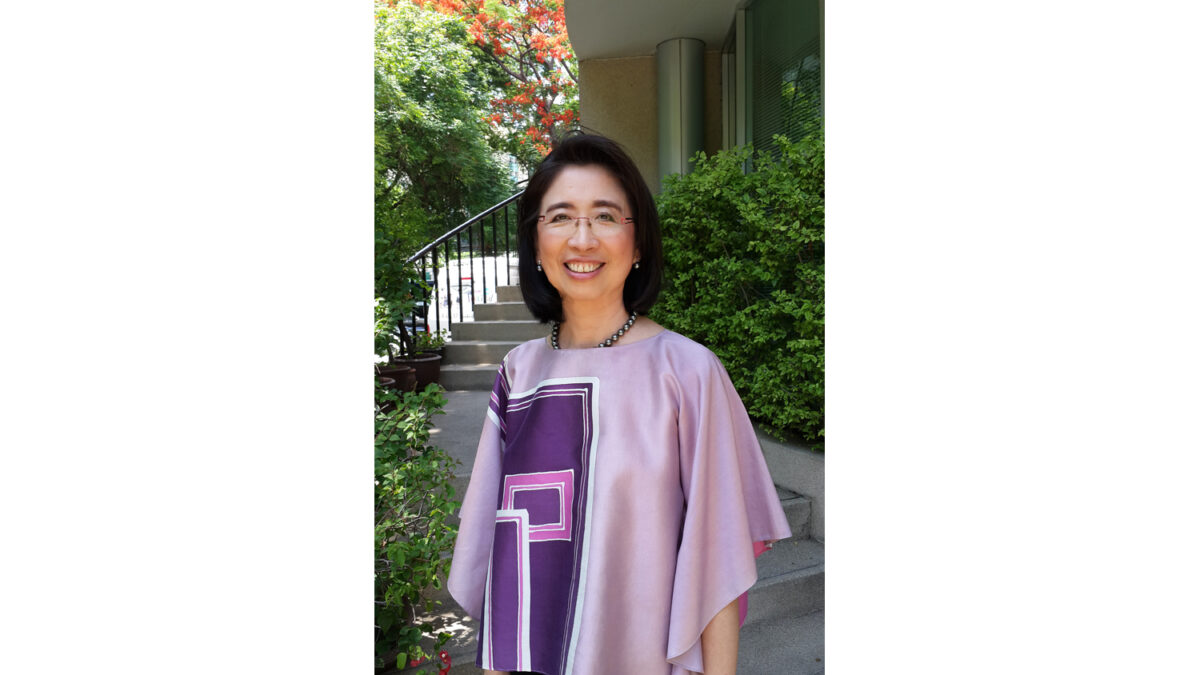
As school gates reopen, some might not be back
27/06/2022
นวัตกรรมจัดยาด้วยระบบ AI ท้าทายโลกยุคดิจิทัล
27/06/2022PUBLISHED : 28 APR 2022 AT 17:44

Every parent or foster parent raises a child with love and care and pays much attention to childhood development milestones.
Language development is important for children’s learning. It has been found that children in early years have a considerable delay in language development compared to other developmental areas. Therefore, parents should raise their children with interaction. Talking, interacting or playing with your child will promote the appropriate development of language skills, apart from emotional and social intelligence. It is advisable to avoid letting your little one watch TV or other screens alone because it is a one-way communication, leading the child to have a speech delay and probably impropriate social interactions, especially during the first two years of age
Assoc. Prof. Nichara Ruangdaraganon, MD., the former deputy director of Ramathibodi School of Medicine and medical lecturer at the Department of Pediatrics, Faculty of Medicine Ramathibodi Hospital, Mahidol University, said that there are many reasons for children’s speech delay, including family genetics or having siblings with history of late-talking, impaired hearing, brain malfunction as well as being nurtured without proper interaction on an ongoing basis. Usually when children hear sounds, voice talking or someone talking to them, they will gradually absorb, understand, and speak automatically. The disorder can be easily observed in children with hearing impairment or severe deafness in both ears. However, for mild or partial loss of hearing, the case may still have some language developmental delays. Some children can speak but not very clearly. For the case with unilateral hearing impairment, there is no effect on language development.
Research has shown that children in the brain dysfunction group have many parts in their developing brain related to language. If some parts do not work or develop well, they affect the development. Some children are born very early. Some of them are deprived of oxygen or have brain diseases that cause malfunction and poor development. There are data from foreign countries showing that 5-15% of children have delayed language development in the first 5-6 years of life. For Thai children, 20% of them are found. The percentage quantity is close to that in developing countries around the world. It reflects that parents in developing societies tend to have less time to talk to their children and, as a result, face more speech delay problems than in developed societies.
Speech delay can be observed by that children speak late at the age of being able to speak or have less developed language comprehension than their peers. Normal children start saying their first words around 1 year old. Some may begin speaking relatively late at the age of over one year to two years old. Studies have shown that if one and a half year old children still do not speak, parents should notice closely whether they understands what others are saying. If the understanding is less than children of the same age, parents shouldn’t wait until they reach two years of age. If they haven’t spoken yet and have no body language to help communicate needs, such as looking at the face, making eye contact, using pointing instead of words, autistic traits may be suspected. In case of only late speaking, having normal language comprehension as good as other children in their age group and no sign of deficiencies in body language, the children are identified as having a “heavy mouth” (hard to speak) in a Thai phrase. Most of them do not have severe disorders and will be able to speak normally in the end. What is worrisome is that parents likely bring their late-talking kids to see a doctor when they are 2-4 years old because they think they can wait and the kids will be able to speak for themselves. This deprives children of the opportunity to receive assistance in the early stages of life. Many children, though, have improved. But they still speak later than their peers. Consequently, if you suspect a child may have hearing impairment or autism, you should consult your doctor immediately.
For treatment guidelines, should it be primarily examined whether other health problems get involved? According to medical practice, the treatment has to start with finding out whether the child has a hearing impairment. There was a case of a grade-one child whose parents come for consultation without suspecting of their kid’s hearing impairment. The child talked less than others of the same age and can’t speak clearly. Finally, the result showed that the hearing impairment occurred in both ears, but to a small extent. Hearing is therefore always needed when investigating the cause. Other groups of diseases may have to be suspected too, such as autism or other developmental aspects.
Assoc. Prof. Nichara Ruangdaraganon, MD., added that among many theories concerning the development of human language, the most recognised one is the interaction. Children need an upbringing that encourages interaction with the parents: talk, interact and play together. The parenting without interacting with each other, such as leaving children alone with a mobile phone, TV or computer for a long time, negatively affects their development, especially during the critical period in brain development. Being mostly with one-way communication for a long period of time, because the caregivers spend less time to talk and play with them, is a factor that impacts children’s development, such as having speech and language delays. The caregivers should thus stay closer and have more opportunity to interact with children; may it be doing activities together or through storytelling. Child rearing practice in Thai culture often considers that being unable to speak means the children are incapable to communicate. So adults tend to talk less to them. But actually the children hear and gradually begin to understand the sounds others are talking to them and from various media around them. Children’s brains can relate information and form a memory which is ready to use when speaking. Consequently, adults should interact with children from birth to help develop language appropriately. Though the use of technology for learning is much improved, for young children, especially in the first 2 years, it should be definitely avoided or used the least. The reason is that at this age, children still need to develop various senses as well as movement, body balance and hand use. Lack of all-round development may affect the development of children in language and other learning, resulting in insufficient school readiness.

